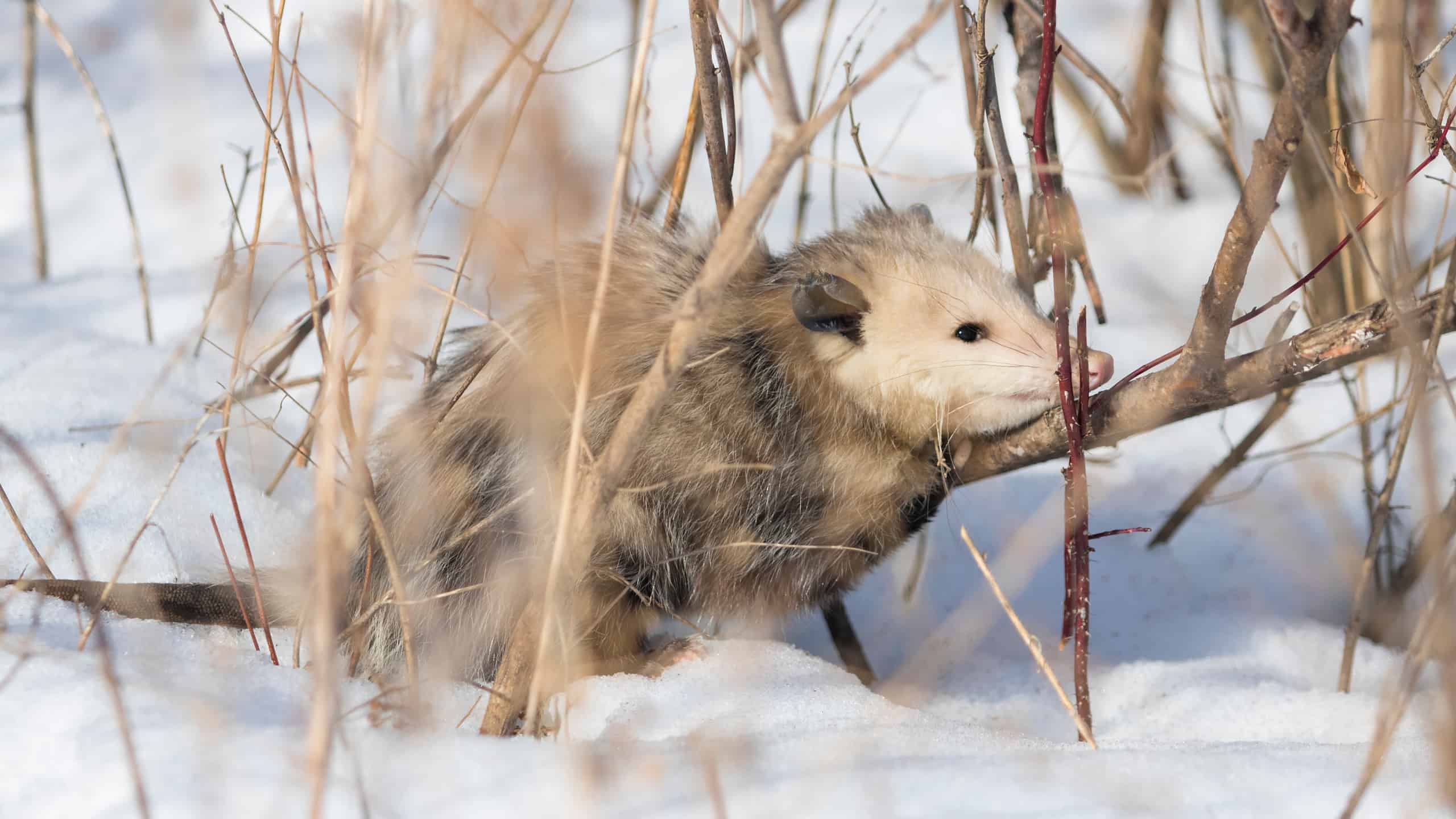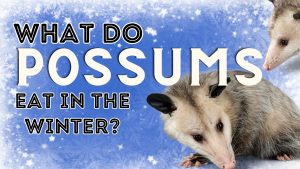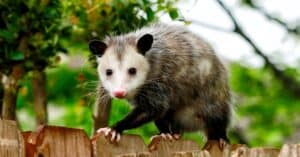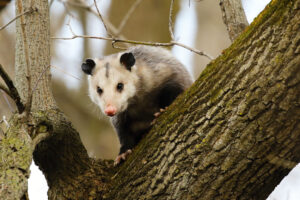Opossums carry several different kinds of reputations. Some people see them as dangerous pests and others celebrate them as friendly, tick-devouring neighbors. Opossums are marsupial mammals endemic to the Americas. They have lived alongside humans in the Americas since before European explorers and colonists settled there.
Archeological proof of opossums dates back 55 million years, from fossils found in rocks in Wyoming, but European explorers only discovered the opossum in the 1400s. One of Christopher Columbus’s commanders found a mother and juvenile opossum and he brought it back to Spain. This critter astonished King Ferdinand, but he did not claim or name it. Instead, it waited another 100 years for its name. John Smith and his colony named the opossum in the 1600s, adopting an Algonquin word that translates to ‘white animal’.
So, what’s the truth about the opossum? Is it a vicious, rabid animal, or is it your tick-eating buddy? We’re going to answer this question – and debunk some common myths – in the coming sections.
Are Opossums Rabid?
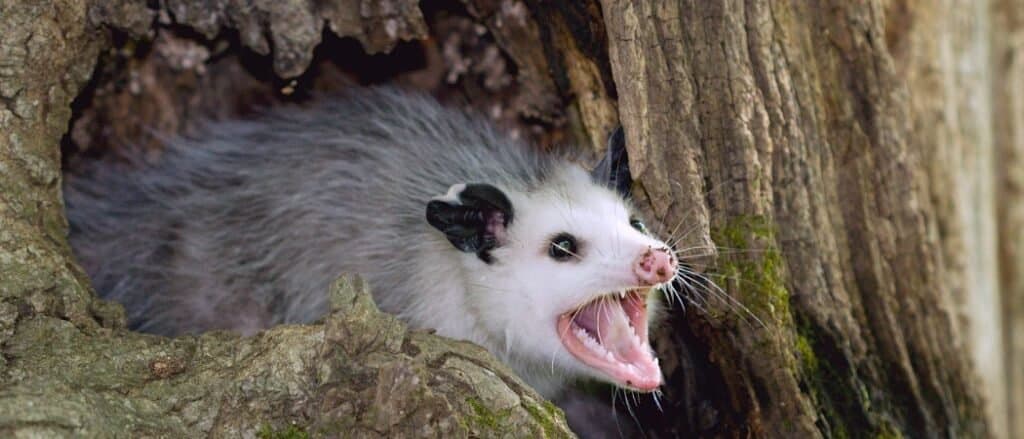
Opossums are America’s only native marsupial.
©iStock.com/rexlis
One common myth about opossums is that they always carry rabies. Actually, this is rarely, if ever, true. Opossums have significantly lower body temperatures than most mammals. This is due to their status as marsupials. Marsupials naturally have lower body temperatures than placental animals. This offers various advantages and disadvantages, but one advantage is that marsupials are naturally more resistant to some viruses, including rabies. Bacteria and viruses thrive in warm environments, so they’ll better inhabit placental animals like bats, raccoons, and skunks.
In short, no. Opossums are rarely rabid and are highly unlikely to spread rabies to other animals or humans.
What About Lyme Disease?
Opossums don’t often carry Lyme disease. This is, in fact, for the same reason as their resistance to rabies. Ticks and mosquitos do bite and latch on to opossums, but their lower body temperatures and strong immune systems usually suppress Lyme disease. Impressively, opossums are also immune to botulism toxins, snake venom, and bee and scorpion stings.
Do Opossums Eat Ticks?
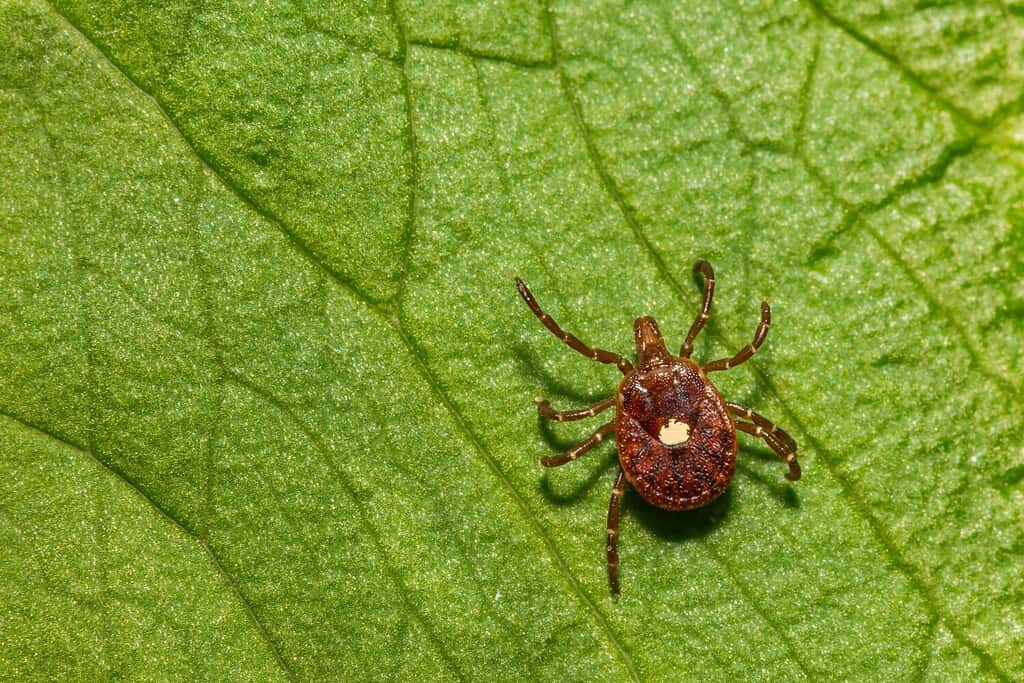
Research has shown that opossums do eat ticks when they are readily available, but they are not a main portion of their diet.
©Jay Ondreicka/Shutterstock.com
A 2009 study by the Royal Society suggests that opossums frequently feed on ticks and tick larvae. In the study, they exposed opossums to large quantities of deer ticks. During this study, researchers observed opossums killing an incredibly high percentage of the ticks that tried to attach to them. This led to the conclusion that opossums are incredible predators of ticks. However, this information isn’t necessarily true.
A new study, published in 2021, seems to contest the findings of the 2009 study. In this new study, researchers looked for evidence that opossums eat ticks by analyzing the stomach contents of 32 different opossums found in the wild in Illinois. This, combined with the cross-referencing of already-available data about opossums, led these researchers to the conclusion that ticks are not, in fact, a large part of the diet of the opossum.
The conclusion seems to be a mixed bag. It seems that yes, opossums do eat ticks when they are readily available, but no, they are not a main portion of their diet. That means keeping the fluffy little critters around for tick prevention is likely not the first or best method of preventing ticks.
Are Opossums Vicious?
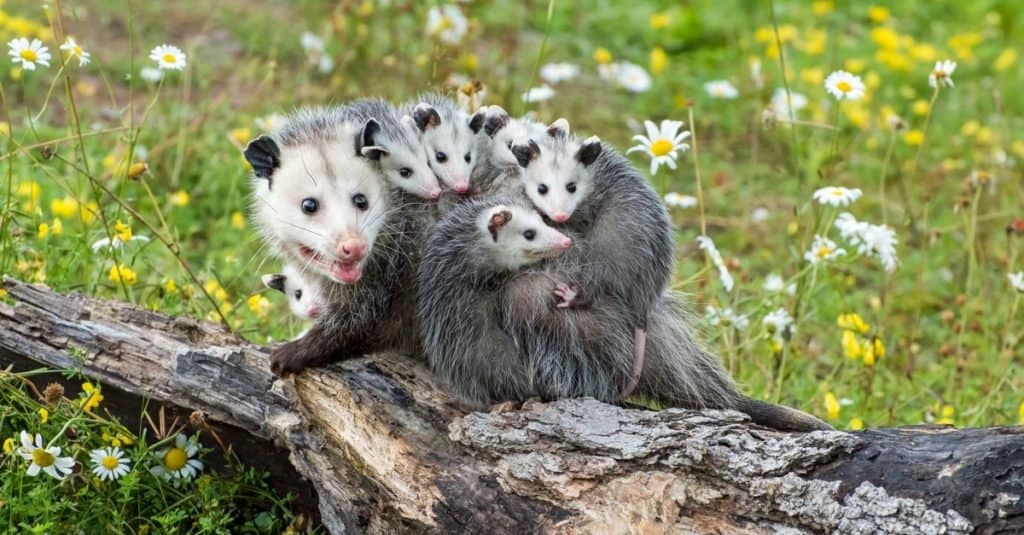
Opossums are omnivores and scavengers, and they love to eat insects, worms, and carrion.
©Evelyn D. Harrison/Shutterstock.com
Opossums are not vicious. Many people think of them as vicious because of the open-mouth snarl they make when they feel threatened. An incredible hiss escapes their throats with their snarl, which makes them seem even more vicious. These are just defense mechanisms. Many opossums will play dead if you get too close to them, instead of lashing out and attacking. This means you should be careful when approaching an opossum that looks to be dead – it might only be faking it out of fear.
Opossums will bite if pressured, but they are usually very placid creatures who just want to be left alone. If you see an opossum in your yard, it is best to just leave it be. More than likely, it will go away on its own.
Do Opossums Eat Chickens?
A big reason rural residents dislike opossums is because of their reputation for being vicious chicken and duck killers. Unfortunately, this rumor does carry some weight. These little critters are omnivores, and they are the opportunist sort. A hungry opossum will kill and eat a chicken or duck, but this is not its first choice.
These little marsupials are more interested in an easy meal than a kill and thus are much more likely to eat roadkill, bugs, and food waste than they are to kill and eat chickens. Even an opossum that breaks into a chicken coop will first target eggs or young birds over adult chickens. Further, these critters aren’t as determined as other predators, and a good fence with some underground protection usually keeps them away from your flocks.
Are Opossums Dirty?
The last big rumor about opossums is that they are dirty, disease-spreading animals. We have already debunked a lot of the disease and virus part of this rumor, so let’s move on to their cleanliness.
In reality, opossums are incredibly tidy animals. Opossums self-groom constantly. They are actually some of the cleanest common critters in the United States. Additionally, they’re natural scavengers and will eat carrion and other stinky refuse that could actually impact your environment. So, not only are they fresh and clean in comparison to other backyard beasts, but they also happily work as a cleanup crew.
Potential Risks
So, opossums are docile and helpful animals? Does that mean they’re safe? Well, yes and no.
First of all, you should remember to never approach wildlife unless absolutely necessary. Getting wildlife used to our presence or disturbing natural environments carries catastrophic risks to animal populations. Remember that we are as much or more of a risk to animals as they are to us. While opossums are some of the milder woodland critters, they still can bite, scratch, or cause harm, specifically with their urine and droppings.
Researchers have found high concentrations of Leptospira bacteria in the urine and fecal matter of opossums. This is the bacteria that causes Leptospirosis, a zoonotic illness (an illness that can be spread from animals to humans). Contact with opossum urine can result in the contraction of Lepto. This risk is especially present for dogs and outdoor cats. Since the illness is zoonotic, an exposed pet can expose people, too.
Human symptoms of Leptospirosis include headache, high fever, muscle aches, vomiting, and abdominal pain. If you’ve contracted Lepto, the Center for Disease Control recommends a course of antibiotics to recover. This bacterial disease can cause great damage if left untreated, including kidney damage, respiratory distress, and liver failure. While this all sounds scary, keep in mind that Leptospirosis is an uncommon disease. Only 100-150 cases of Lepto are reported in the United States annually.
What to do if you see an Opossum
If you are worried about the presence of an opossum in your yard, please call pest control. Trying to deal with a wild animal on your own can result in unwanted consequences. A mother opossum is much more likely to be protective and lash out, and you can’t be sure of the position this little critter is in. To avoid losing sight of it or being harmed while trying to move it, trust professionals who will ethically capture and relocate the animal.
Before making your choice, consider how the opossum is impacting you and your safety. As we stated before, most opossums just mind their own business and will move along on their own. They can be helpful to you by eating slugs, snails, and small rodents in your garden or barn. It’s very possible that your furry little neighbor will help you more than hurt you.
Thank you for reading! Have some feedback for us? Contact the AZ Animals editorial team.

